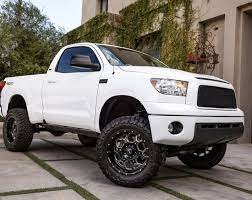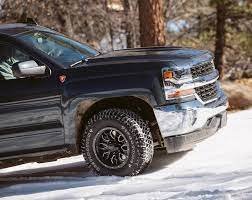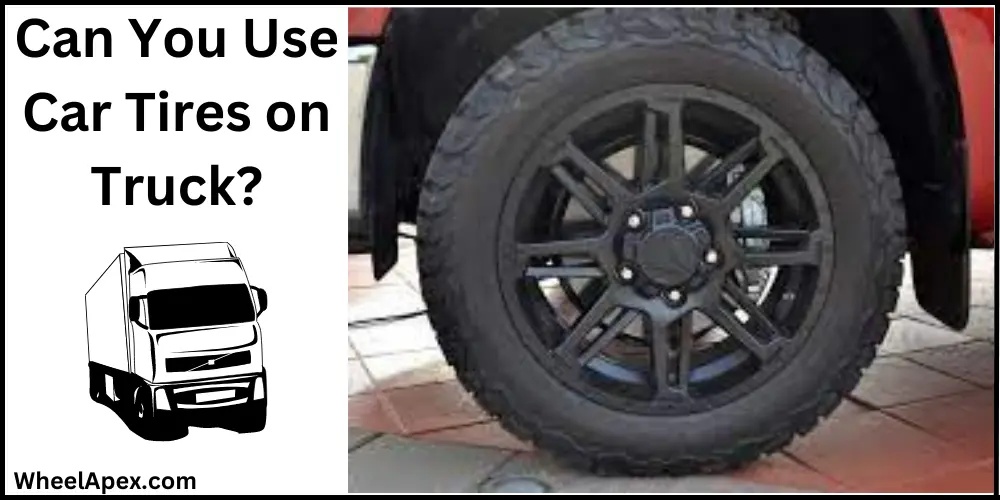Can You Use Car Tires on Truck? With regards to tires, picking the right ones for your vehicle is essential for well-being, execution, and life span. In any case, with countless choices accessible available, it’s not difficult to get overpowered by the tire determination process. One inquiry that frequently emerges is whether vehicle tires can be utilized on a truck. The two vehicles have haggles, so they should be to some degree exchangeable, isn’t that so?
In this article, we will dig into the entrancing universe of tires and investigate whether it is feasible to utilize vehicle tires on a truck. We will examine the key factors that separate vehicle and truck tires, their novel plan highlights, and the ramifications of utilizing some unacceptable sort of tire on your truck. By and by, you’ll have a reasonable comprehension of the expected dangers and results of trading out truck tires for their vehicle partners.
Thus, on the off chance that you’ve at any point puzzled over whether vehicle tires can be utilized on a truck and what the ramifications may be, read on as we unwind the tire predicament and shed light on this significant subject for vehicle proprietors and fans the same.
Can You Use Car Tires On Truck?
With regards to tires, one size doesn’t fit all. Vehicles, like vehicles and trucks, have special prerequisites, including load limit, execution, and toughness. Many individuals puzzle over whether it is feasible to utilize vehicle tires on a truck as an expense-saving measure or because of accessibility. We will dive into this subject and investigate the possible dangers and contemplations related to utilizing vehicle tires on trucks and find the best size of car tires.
Using car tires on a truck is not recommended as they may not have the necessary load-bearing capacity or durability to handle the heavier weight and demands of a truck. Opting for truck-specific tires ensures safety and optimal performance.
Grasping the Distinctions

Before we plunge into the subtleties, it is critical to comprehend the major distinctions between vehicle and truck tires. Vehicle tires are intended to offer an agreeable and smooth ride, zeroing in on low commotion levels, fantastic footing on cleared streets, and upgraded eco-friendliness. Then again, truck tires are worked to endure heavier burdens, handle unpleasant territory, and give ideal dependability under requesting conditions.
Load Limit
One of the essential elements to consider is the heap limit. Trucks are intended to convey fundamentally heavier burdens compared with vehicles. Vehicle tires are not designed to help the heaviness of a truck, which can prompt various security concerns. Overburdening vehicle tires on a truck can bring about unnecessary intensity development, tire victories, and compromised dealing, representing a gamble to both the driver and other street clients.
Size and Aspects
Vehicle and truck tires additionally contrast regarding size and aspects. Trucks for the most part require bigger, more extensive, and taller tires to oblige the weight they convey and keep up with solidness. Endeavoring to fit vehicle tires on a truck might bring about an ill-advised fit, influencing the general presentation and compromising well-being. It is fundamental to comply with the producer’s rules concerning tire size and burden limit concerning your particular truck model.
Footing and Solidness
Truck tires are intended to give a predominant foothold, particularly on rough terrain or testing landscapes. They include strong track designs, further scores, and built-up sidewalls to deal with harsh circumstances. Vehicle tires, then again, focus on solace and quietness over outrageous footing. Utilizing vehicle tires on a truck can think twice about the capacity to explore through lopsided surfaces, expanding the gamble of mishaps and decreased control.
Dealing with and Soundness
Trucks require tires that offer phenomenal taking care of and dependability because of their higher focus on gravity and potential for influencing. Vehicle tires come up short on vital underlying scaffolding and solidness expected to give ideal strength to a truck. The outcome might be compromised guiding reaction, using tires on a camper, expanded body roll, and decreased control, which can be risky in basic circumstances.
Protection and Legitimate Ramifications

Utilizing vehicle tires on a truck may likewise have suggestions concerning protection inclusion and lawful consistency. Guarantors and guidelines frequently expect vehicles to fulfill explicit well-being guidelines, including proper tire utilization. Assuming a mishap happens and it is resolved that ill-advised tires are being used, it could prompt denied protection claims or lawful outcomes.
FAQs
Are Car And Truck Tires The Same?
Vehicle and truck tires are not something similar. They contrast in size, load-conveying limit, and track plan. Truck tires are bigger and more powerful to deal with heavier burdens, while vehicle tires focus on solace and eco-friendliness. Picking the right tire type for your vehicle is pivotal for security and execution.
Can I Put SUV Tires On My Truck?
It’s for the most part not prescribed to put SUV tires on a truck. While they could fit, SUV tires aren’t intended to deal with the weight and burden conveying limit of a truck. Utilizing appropriate truck tires guarantees wellbeing, execution, and solidness, while additionally keeping up with your vehicle’s expected usefulness. Continuously counsel your vehicle’s manual for tire details.
Can Any Tires Go on Any Truck?
Not all tires can continue on any truck. The similarity of tires with a truck relies upon factors like tire size, load rating, and planned use. It’s essential to choose tires explicitly intended for your truck’s determinations and expected application to guarantee security, execution, and life span.
Are Truck Tires Stronger Than Car Tires?
Truck tires are ordinarily more grounded than vehicle tires because of their thicker and more hearty development. They are intended to endure heavier burdens, more unpleasant territory, and longer distances. Vehicle tires focus on solace and eco-friendliness, while truck tires focus on solidness and burden conveying limit, making them more grounded for their planned purposes.
Conclusion:
While it could be enticing to utilize vehicle tires on a truck because of comfort or cost-saving measures, it isn’t suggested in light of multiple factors. Vehicle tires are planned with explicit attributes and details that take care of the weight, size, and execution needs of traveler vehicles. Trucks, then again, have their extraordinary necessities, including expanded load-bearing limit and soundness.
Utilizing vehicle tires on a truck can prompt various well-being issues and execution disadvantages. The lack of burden conveying limit of vehicle tires might bring about tire victories, diminished slowing down proficiency, and compromised dealing. Furthermore, the sidewalls of vehicle tires are by and large not generally so powerful as those of truck tires, making them more helpless to harm and disappointment when exposed to weighty loads or harsh landscapes.
Sources:
- By J.P.Bass Can tires and rims designed for trailers be used for cars and trucks? Posted 2 Years Ago.

